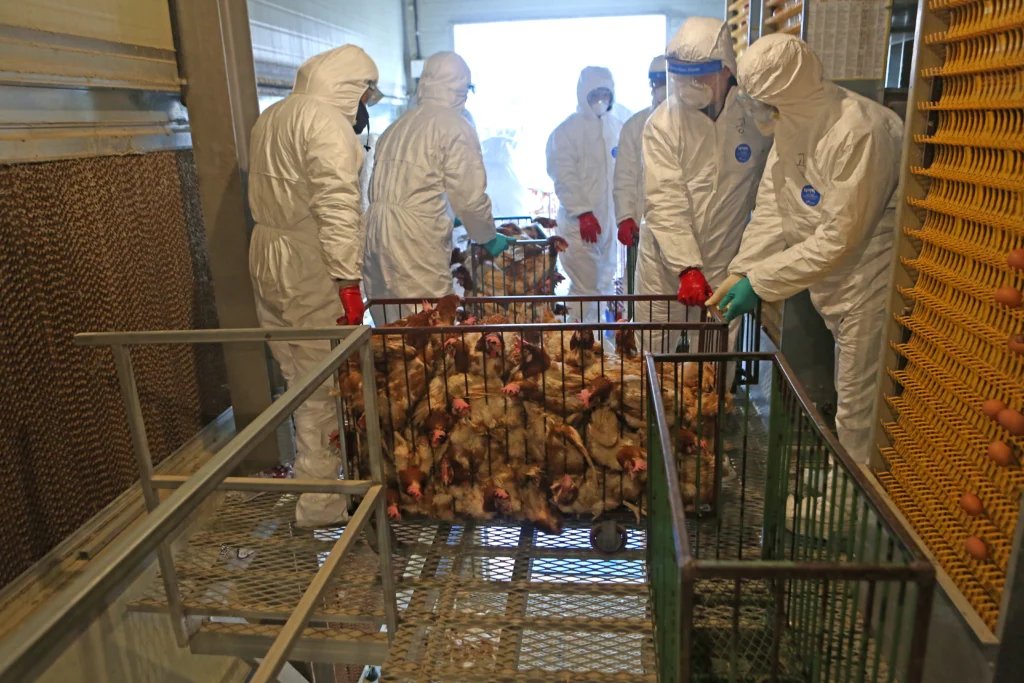Why Spotting Disease Early Matters
Raising poultry isn’t just about feed and shelter. It’s about observation. A small sign, missed feed, less movement, can mean something deeper. Most birds won’t make it obvious when something’s wrong, you just have to catch the small changes before they turn serious. Here are five clear signs your bird might be getting sick, and how the right Poultry and Livestock Medicine can help you handle it before it gets worse.
Sudden Drop in Egg Laying
Yesterday you had a full basket. Today, maybe just one or two, some with weak shells, or none at all. That’s a warning.
Possible Causes:
Stress (from predators, weather, noise)
Nutrition issues
Early signs of Coccidiosis
What You Can Do:
Check feed quality and calcium levels.
Minimize stress around the coop.
If no change, begin a course of Poultry and Livestock Medicine focused on gut or reproductive support.
Lethargy or Weakness
When a chicken just sits alone, fluffed up, with eyes half-closed, it’s not resting. It’s likely fighting something.
What It Could Mean:
Fever
Digestive upset
Parasite or Coccidia infection
Quick Response:
Move the bird to a quiet, dry space.
Give electrolytes.
Start gentle Poultry and Livestock Medicine right away. Early treatment is key.
Unusual or Bloody Droppings
Seeing loose, greenish, or bloody droppings? That’s a big red flag, usually pointing toward something serious like Coccidiosis.
Common Causes:
Gut parasites
Dirty bedding conditions
High-stress environments
What to Give:
Clean the coop immediately.
Provide clean water and dry bedding.
Administer an anti-coccidial product from your Poultry and Livestock Medicine stock.

Breathing Trouble or Sneezing
You hear a strange rasping or see open-mouth breathing. It might start with one bird but can spread fast.
Likely Reasons:
Poor air circulation
Ammonia buildup from wet bedding
Viral or bacterial infection
What to Do:
Ventilate the coop better.
Remove ammonia sources (wet litter, overcrowding).
Begin treatment with vet-recommended Poultry and Livestock Medicine made for respiratory health.
Loss of Appetite & Weight
If a bird is avoiding food, or pecking and walking away, it’s not being picky. It’s not well.
Watch For:
Sudden weight loss
Thin, sunken appearance
Disinterest in feed or water
What to Try:
Offer soft mash with warm water
Mix in vitamins or probiotics
Treat with digestive-supportive Poultry and Livestock Medicine, especially if worms or infection are suspected.
Prevention Is Always Better Than Cure
Most poultry illnesses can be avoided by sticking to some basics:
Clean water and feeders daily
Rotate bedding and reduce moisture
Avoid crowding, especially in hot weather
Use Poultry and Livestock Medicine regularly as part of preventive care
A little attention each day goes a long way in keeping your flock strong.
Why HillFarm Canada?
Farmers trust HillFarm Canada for a reason. Our range of Poultry and Livestock Medicine is carefully selected to treat real-life poultry problems—from respiratory issues to coccidiosis and gut health.
Our products are:
Vet-approved
Safe for small and large flocks
Backed by expert support
Final Thoughts
Your birds can’t tell you they’re sick. But they show it, in how they act, eat, move. If you catch the signs early, treat quickly, and have the right Poultry and Livestock Medicine on hand, you’ll save lives, and your farm.
Don’t wait for things to get worse. Notice. Act. Protect.
